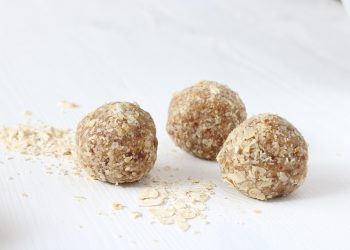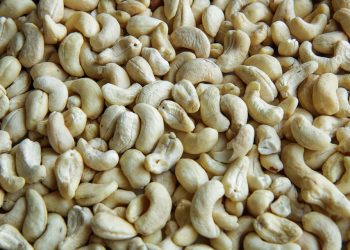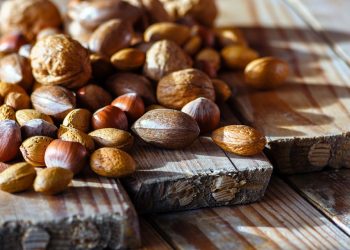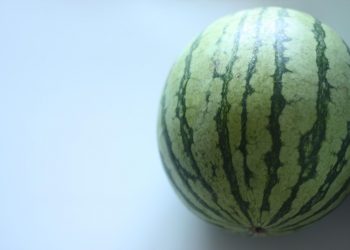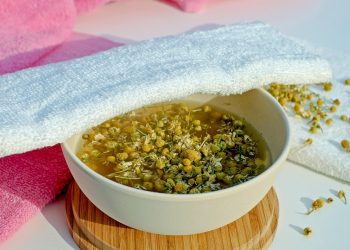Sustainable foods are not just a trend; they’re a lifeline to our planet and your health. When you choose sustainable foods, you’re not just filling your plate—you’re making a statement about what matters. It’s about taking a stand for the environment, for your community, and for your own well-being. Let’s dive into ten sustainable foods that will help you create a greener plate and a healthier you.
Contents
What Are Sustainable Foods?
Sustainable foods are those sourced and produced in ways that have minimal impact on the environment while supporting local economies and promoting animal welfare. These foods are grown in harmony with nature, often using organic practices that enrich the soil rather than deplete it. By opting for sustainable options, you’re contributing to a system that fosters biodiversity and combats climate change.
Why does this matter? Because every bite you take can be a vote for a healthier planet. You have the power to nurture not just your body, but the earth.
1. Seasonal Fruits and Vegetables
Eating seasonal produce is one of the simplest ways to embrace sustainability. When you choose fruits and veggies that are in season, you support local farmers and reduce the carbon footprint associated with transportation.
- Why it matters: Seasonal crops require less energy and resources to grow, making them a more sustainable choice.
- How to enjoy: Visit your local farmer’s market or join a community-supported agriculture (CSA) program to get fresh, seasonal produce directly from the source.
If you’re curious about the benefits of seasonal eating, check out the USDA’s guide on seasonal produce.
2. Legumes and Pulses
Beans, lentils, and chickpeas are not just protein-packed powerhouses; they’re also champions of sustainability. Legumes enrich the soil with nitrogen, making them beneficial for crop rotation.
- Why it matters: They require less water compared to animal protein and help reduce greenhouse gas emissions.
- How to enjoy: Toss them in salads, blend them into hummus, or whip up a hearty chili. The possibilities are endless!
For more on the environmental benefits of legumes, the World Resources Institute offers extensive research.
3. Whole Grains
Whole grains like quinoa, brown rice, and farro can make a significant impact on your health and the planet. They are more nutrient-dense than their refined counterparts and often require fewer resources to grow.
- Why it matters: Whole grains support biodiversity and sustainable farming practices.
- How to enjoy: Experiment with grain bowls topped with fresh veggies and your favorite protein.
Curious about the nutritional benefits? The Whole Grains Council has you covered.
4. Sustainable Seafood
Choosing seafood that is sustainably sourced can help protect marine ecosystems. Look for certifications like the Marine Stewardship Council (MSC) label.
- Why it matters: Overfishing and destructive fishing practices harm ocean life. Sustainable seafood protects habitats and fish populations.
- How to enjoy: Try grilled salmon, shrimp tacos, or a fresh seafood paella.
For guidelines on sustainable seafood, visit the Monterey Bay Seafood Watch.
5. Grass-Fed and Pasture-Raised Meats
When it comes to meat, opting for grass-fed beef and pasture-raised poultry can make a world of difference. These animals are raised in more humane conditions and contribute to healthier ecosystems.
- Why it matters: They require less energy and produce fewer emissions compared to conventionally raised livestock.
- How to enjoy: Savor a juicy grass-fed burger or a succulent roast chicken.
For insights on the benefits of grass-fed meat, check the American Grassfed Association.
6. Dairy Alternatives
With the rise of plant-based diets, there are fantastic options for dairy alternatives that are kinder to the planet. Almond, oat, and soy milk are just a few examples.
- Why it matters: Dairy production can be resource-intensive. Plant-based alternatives typically have a lower environmental impact.
- How to enjoy: Use almond milk in your morning smoothie or oat milk in your coffee.
Interested in the environmental impact of dairy? The Dairy Good website offers valuable insights.
7. Nuts and Seeds
Nuts and seeds are not only good for your heart; they’re also a sustainable choice. They require fewer resources to grow and are versatile in the kitchen.
- Why it matters: They’re packed with nutrients and can substitute for animal protein in many recipes.
- How to enjoy: Snack on a handful of almonds, sprinkle chia seeds on your yogurt, or make a nut-based pesto.
For more information on the health benefits of nuts, visit the California Walnut Board.
8. Organic Honey
When it comes to sweeteners, organic honey is a sustainable choice that supports local beekeepers. Bees play a crucial role in pollinating the crops we depend on.
- Why it matters: Supporting local honey production contributes to bee conservation efforts.
- How to enjoy: Drizzle it over your oatmeal or use it as a natural sweetener in recipes.
To learn more about the importance of bees, check out the Bee Conservancy.
9. Fermented Foods
Fermented foods like sauerkraut, kimchi, and yogurt not only benefit your gut health but also promote sustainable practices. Many of these foods are made from surplus produce.
- Why it matters: They often require less energy to produce and can reduce food waste.
- How to enjoy: Add fermented veggies to your sandwiches or enjoy them as a side dish.
For more on the health benefits of fermentation, visit Cultures for Health.
10. Local Honey
Local honey is more than just a sweet treat. It’s a sustainable option that supports local ecosystems and beekeepers.
- Why it matters: Honeybees are crucial pollinators, and buying local honey helps sustain their populations.
- How to enjoy: Use it in teas, dressings, or simply as a sweetener.
To understand the importance of local honey, check out the Honeybee Conservancy.
Bottom Line
Choosing sustainable foods for a greener plate is not just a personal decision; it’s a collective movement towards a healthier planet. Each choice you make in the grocery store can ripple out into your community and the world. Embrace these ten sustainable foods, and you’ll not only nourish your body but also contribute to a better future for all.
So, what are you waiting for? Start making those choices today!
FAQ
What are sustainable foods?
Sustainable foods are those produced in ways that minimize environmental impact while promoting local economies and animal welfare.
Why should I choose sustainable foods?
Choosing sustainable foods helps protect the environment, supports local farmers, and can improve your health.
How can I find local sustainable food sources?
Look for farmer’s markets, join a CSA program, or check local food co-ops for sustainable options.
Get Your FREE Natural Health Guide!
Subscribe now and receive our exclusive ebook packed with natural health tips, practical wellness advice, and easy lifestyle changes — delivered straight to your inbox.


